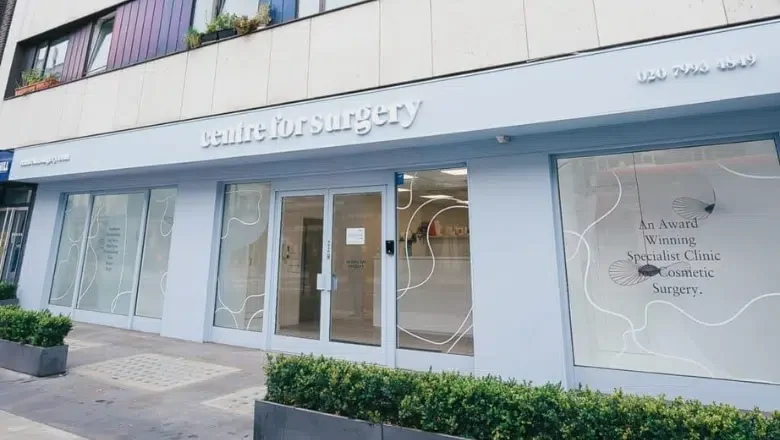In a world where flawless appearances are constantly promoted, concerns about one’s own looks can sometimes tip over into something more serious. Body Dysmorphic Disorder, or BDD, affects how a person sees and judges their appearance, often in ways that don’t match reality. When someone with BDD considers cosmetic surgery, it can be a risky path because those underlying feelings might not improve, even after procedures.
At Centre for Surgery, we focus on patient well‑being above all else, helping those who may be struggling with self‑image to make informed choices about whether aesthetic treatment is right for them.
RELATED: Addressing Common Concerns about Cosmetic Surgery
What Is Body Dysmorphic Disorder?
Body Dysmorphic Disorder is a mental health condition where someone becomes overly concerned with a perceived flaw in appearance. These “flaws” may be minor or not visible at all to others. Yet the person fixates, often for hours each day, on specific body parts or features. This distress goes beyond normal self‑consciousness. It frequently disrupts daily life and can even lead to depression or social withdrawal. The intensity and persistence of these concerns are core to diagnosing BDD.
Why Cosmetic Surgery Can Be Problematic for BDD Patients
Cosmetic surgery can feel like a solution when you’re troubled by how you look. But if those worries stem from BDD, simply changing an external feature is unlikely to ease them. The mind may shift its focus to another imagined flaw or become fixated on tiny imperfections after surgery. This can leave the patient feeling empty, dissatisfied, and sometimes desperate. In such situations, surgery doesn’t address the root of the problem and can even worsen mental distress.
Recognising the Warning Signs Before Procedures
If someone is constantly checking their appearance, asking others for reassurance, or comparing themselves with others online, these behaviours may signal more than simple concern. Avoidance of social settings, camouflaging features, or persistent anxiety about looks are further indicators. When a person’s emotional state is tied to perceived imperfections, a thorough psychological evaluation should precede any surgical consultation. That way, doctors and mental health professionals can work together to determine if corrective procedures are truly appropriate—or if therapeutic support should come first.
How to Balance Psychological Health and Aesthetic Goals
Ideally, a specialist plastic surgeon experienced in BDD will flag signs of the disorder and recommend a pause. That pause creates space to explore counselling or therapy. Cognitive behavioural therapy has shown success in helping sufferers recognise and challenge distorted thoughts about appearance. If treatment brings relief and the urge for cosmetic intervention remains, then surgery can be revisited responsibly. This approach ensures that decisions are made with both physical and mental health in mind.
When Cosmetic Surgery Still Makes Sense
There are times when cosmetic surgery is appropriate, even when self‑criticism is present. If a patient has realistic expectations, understands the limitations, and therapy has alleviated harmful thought patterns, then proceeding with surgery might be reasonable. This is especially true when a clear, benign concern is causing real distress—like a prominent scar or a minor asymmetry that has a large emotional impact. In such cases, shared decision‑making between clinician and patient fosters safer outcomes.
What Patients Should Ask Themselves Before Going Ahead
Before moving forward, ask whether the concern would matter to someone else, whether the fear persists despite reassurance, and whether it interferes with joy in life. Consider whether treatment could backfire emotionally. It’s worth talking through every doubt, including your hopes and anxieties. A responsible clinic will encourage that dialogue instead of pushing ahead.
What Cosmetic Clinics Should Do Differently
Cosmetic clinics in the UK have a duty to look beyond the surface. They should train staff to ask open questions, notice distress and check for unrealistic expectations. They should also have strong partnerships with mental health professionals so patients receive holistic care. Prioritising mental health is not anti‑aesthetic: it protects people from harm and leads to more ethical outcomes.
Stories from Real People: When Surgery Doesn’t Fix Everything
Many individuals feel a sense of completion after a cosmetic procedure—but not those grappling with BDD. One woman recently described how a nose job brought fleeting relief, only for her gaze to shift to her chin next. Another man’s eyelid surgery resolved one worry but triggered new anxieties about his jawline. These stories emphasise that when someone’s self‑worth depends on changing the body, the move toward surgery often leads them deeper into dissatisfaction.
How to Spot a Trustworthy Surgeon in This Context
If you’re considering surgery and wonder if your concerns might reflect deeper distress, look for clinics that insist on psychological screening. Ethical practitioners will take the time to explore your motivations, discuss the possible emotional aftermath, and partner with mental health experts. If a clinic or surgeon refuses to talk through your mindset or dismisses caution, that’s a red flag. A good surgeon respects both the physical and inner needs of every patient.
RELATED: Choosing Your Surgeon
Cultural Pressures: Why BDD Feels Stronger Today
In today’s image‑focused society, with filters, mirrors, and carefully curated feeds, the pressure to look “perfect” can feel overwhelming. Constant comparison to modified images fuels dissatisfaction. That environment makes BDD more likely and more difficult to detect. Only when people believe that even minor features are unacceptable does the appeal of cosmetic surgery grow—and when unchecked, that appeal becomes dangerous.
How Therapy Complements Surgery When Anxiety Over Appearance Runs Deep
Therapy builds a sturdier self‑foundation. It encourages someone to break the habit of obsessive thought and reassures them in healthier ways. With therapy, patients often rediscover joy in daily life, begin to see themselves more accurately, and gain confidence that doesn’t depend on changing body shape or size. Should surgery become an option, it will be a considered choice rather than a frantic attempt to quiet inner turmoil.
FAQ: Common Questions About BDD and Cosmetic Treatment
How can I tell if I’m just self‑conscious or if it might be BDD?
If the worry about your appearance is intrusive, repetitive and causing you emotional pain, it may go beyond normal self‑concern. The difference is distress and disruption to daily life. Reflect honestly on how much time you spend caught up in those thoughts.
Could surgery actually make the problem worse?
Yes. When BDD is at play, surgery often fails to deliver relief. Instead, the focus can shift to another perceived flaw, making the distress stronger and more pervasive.
Should I see a therapist before even thinking about surgery
Absolutely. Speaking to a therapist first helps clarify what’s driving your concerns. It offers a buffer against impulsive decisions and can lead to long‑term contentment, whether or not surgery ever happens.
What type of therapy helps with body‑related anxiety?
Cognitive behavioural therapy is known to be effective. It helps you recognise distorted thoughts about appearance and practice responding to them differently. Some people also benefit from mindfulness‑based approaches or compassion‑focused work.
About Centre for Surgery
Centre for Surgery is committed to excellence in aesthetic care and patient welfare. We believe that true transformation isn’t just about altering how someone looks—it’s about ensuring they feel grounded, informed and psychologically safe at every stage.











